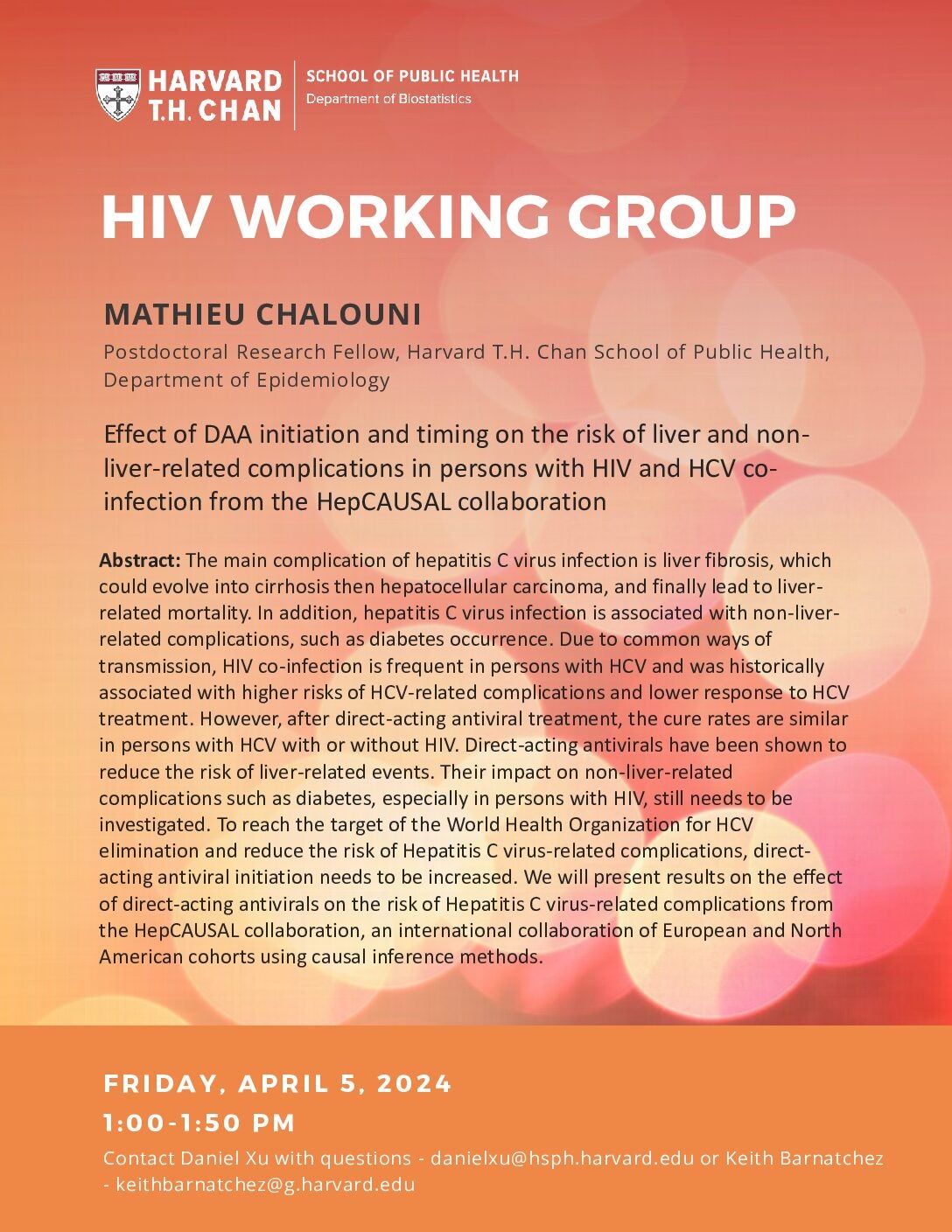
HIV Working Group Seminar

Mathieu Chalouni
Postdoctoral Research Fellow, Harvard T.H. Chan School of Public Health, Department of Epidemiology
Effect of DAA initiation and timing on the risk of liver and non-liver-related complications in persons with HIV and HCV co-infection from the HepCAUSAL collaboration
Abstract: The main complication of hepatitis C virus infection is liver fibrosis, which could evolve into cirrhosis then hepatocellular carcinoma, and finally lead to liver-related mortality. In addition, hepatitis C virus infection is associated with non-liver-related complications, such as diabetes occurrence. Due to common ways of transmission, HIV co-infection is frequent in persons with HCV and was historically associated with higher risks of HCV-related complications and lower response to HCV treatment. However, after direct-acting antiviral treatment, the cure rates are similar in persons with HCV with or without HIV. Direct-acting antivirals have been shown to reduce the risk of liver-related events. Their impact on non-liver-related complications such as diabetes, especially in persons with HIV, still needs to be investigated. To reach the target of the World Health Organization for HCV elimination and reduce the risk of Hepatitis C virus-related complications, direct-acting antiviral initiation needs to be increased. We will present results on the effect of direct-acting antivirals on the risk of Hepatitis C virus-related complications from the HepCAUSAL collaboration, an international collaboration of European and North American cohorts using causal inference methods.